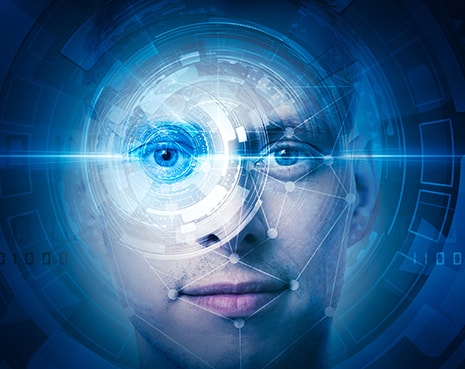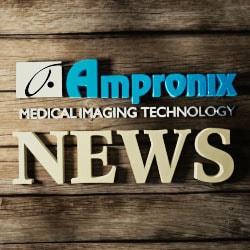Software diagnoses DiGeorge syndrome to assist Atlas of Human Malformations in Diverse Populations
Orange County, CA - March 27th 2017 - DiGeorge syndrome, also known as 22q11.2 deletion syndrome, is a disorder produced by the deletion of a portion of chromosome 22. The disorder affects between 1 in 3,000 to 1 in 6,000 children worldwide and can cause a variety of body defects depending on the affected body systems. Commonly, those diagnosed suffer from heart defects, poor immune system function, cleft palate, and delayed behavioral and emotional development. The number, extent, and time of symptom development, vary making diagnosis difficult for trained physicians.
While most of those affected will grow up to live a long a normal life, some symptoms of the disease can be so severe that early detection and intervention is crucial for an increased quality of life. A difficult task, for in cases of malformation syndromes various complications manifest differently around the world, negating any uniform method of diagnosis. To assist in the early detection of DiGeorge syndrome, researchers from the National Human Genome Research Institute (NHGRI) developed facial recognition software able to diagnose the disease in Africans, Asians and Latin Americans.
Beginning the study, researchers analyzed the clinical information of 106 participants and the photographs of 101 participants all hailing from 11 countries in Africa, Asia and Latin America. The facial recognition software was then trained and used to compare a group of 156 Caucasians, Africans, Asians and Latin Americans with DiGeorge syndrome to 156 matched controls without the disease. From this information, the researchers were able to correctly diagnose with 96.6% accuracy. The team hopes to expand the software’s capabilities to eventually allow physicians to take photos of their patients with a cell phone for analysis and quick retrieval of results

This technology was also advantageous in correctly diagnosing Down syndrome and the team is already further applying it to study Noonan and Williams syndrome, two other rare human malformation disorders. All of these malady fall under the Atlas of Human Malformations in Diverse Populations. Launched by the NHGRI, the Atlas will include photos of physical traits belonging to diseases from around the world, including in depth descriptions. They will be cataloged will be searchable by phenotype, syndrome, continental region of residence, and genomic and molecular diagnosis. Once complete, this could be a great asset in diagnosis for physicians across the globe.
Co-creator of the Atlas and chief of NHGRI's Medical Genetics Branch Maximilian Muenke, M.D., hopes that those in places with fewer resources will be able to use the atlas and facial recognition software for early diagnoses. "Early [diagnosis] means early treatment along with the potential for reducing pain and suffering experienced by these children and their families."
Contact Ampronix:

Email: info@ampronix.com
International Sales: +1 949-273-8000
Domestic Sales: 1800-400-7972 for US and Canada
Follow Us:
Share This Article:
View our Product Catalog Online Here
About Ampronix
Ampronix is a renowned authorized master distributor of the medical industry's top brands as well as a world-class manufacturer of innovative technology. Since 1982, Ampronix has been dedicated to meeting the growing needs of the medical community with its extensive product knowledge, outstanding service, and state-of-the-art repair facility. Ampronix prides itself on its ability to offer tailored, one-stop solutions at a faster and more cost-effective rate than other manufacturers. Ampronix is an ISO & ANSI/ESD certified facility. To learn more go here.
Software diagnoses DiGeorge syndrome to assist Atlas of Human Malformations in Diverse Populations Orange County, CA – March 27th 2017 – DiGeorge syndrome, also known as 22q11.2 deletion syndrome, is a disorder produced by the deletion of a portion of chromosome 22. The disorder affects between 1 in 3,000 to 1 in 6,000 children worldwide and […]



